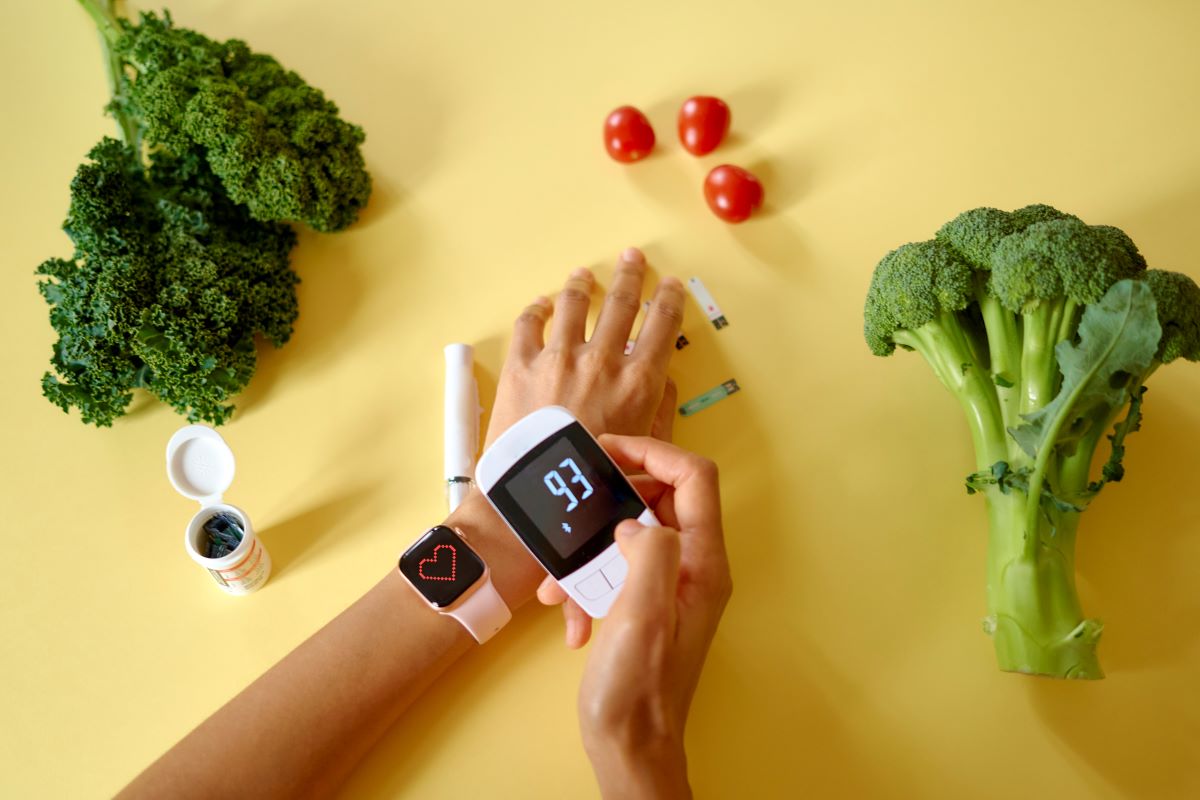Diabetes disparities: Penn State Health diabetes specialist works to improve health equity

No one wants to hear the “Big D” diagnosis—diabetes. It’s a disease that means new medication, changes in lifestyle and, increasingly, the use of diabetes technology.
If you’re a person of color, however, management of diabetes may be affected by lack of access to that important technology, potentially increasing the risk of future complications.
Christie Gehman, a Penn State Health registered dietitian and certified diabetes care and education specialist at Penn State Health Lime Spring Outpatient Center, has made it her mission to learn about the intersection of diabetes and minorities and how equal access to technology could have a significant impact on health outcomes.
Becoming aware of ‘blind spots’
“I realized that as a health care provider, I had personal biases and needed more information to be aware of gaps in care as well as my own blind spots,” Gehman said. “Education is key to addressing potential biases. In this case, bias can affect how groups of people receive information on technology that can help them.”
Whether implicit or conscious, bias can affect access to technology. When that occurs, the person of color does not gain equal opportunity to use technology to improve diabetes control, health outcomes and quality of life.
Challenges undermine self-management
The results are troubling, Gehman said. Studies by the Association of Diabetes Care & Education Specialists indicate that, overall, Black people “are more than twice as likely as white people to experience high blood pressure, diabetes and stroke and die at an earlier age of all causes.” A CDC report found that because of systemic inequities, the risk of developing diabetes to be 13.2% for Blacks, 12.5% for Hispanics and 9.2% for Asians, compared to 7.6% for whites.
Diabetes self-management is critical to achieving target blood glucose levels and delaying potential complications. Underserved groups not only face this issue, but may also have to deal with language barriers, economic hardships and challenges accessing health care appointments, including virtual health care.
TechQuity: Advancing health equity
Additional studies demonstrate disparities across groups in the use of diabetes technologies such as connected insulin pumps, continuous glucose monitoring, smart insulin pens, remote coaching programs, decision-support software, health and wellness applications and telehealth visits to manage diabetes.
Despite higher rates of diabetes in these groups, people of color use technology less than their white counterparts, research by the Association of Diabetes Care & Education Specialists found. “The association’s studies showed that blacks have the lowest rates of insulin pump use at 20%, with Hispanics at 49% and whites at 61%,” Gehman said.
To address these disparities, the concept of “TechQuity” is being pursued. It aims to ensure health care equity by promoting the development and use of health care technology that would be available to all patients, regardless of race or any other factors.
“All of the information I’ve learned, including that gained by my own diversity-focused research, is helping me to develop plans for addressing inequality in diabetes treatment and education,” said Gehman. Through additional review of studies and attendance at diversity-focused diabetes seminars, she is working on diabetes education resources that can be used by other disease specialists.
Tackling health disparities, unconscious bias
Gehman’s work dovetails with Penn State Health’s commitment to addressing health disparities that impact diverse populations. “In 2022, we launched a matrixed approach to advancing health equity with a current focus on avoiding strokes. Diabetes is a risk factor for stroke,” said Lynette Chappell-Williams, vice president and chief diversity officer. “Understanding potential bias increases awareness of the unique challenges patients may face.”
To increase employee awareness of those challenges, Penn State Health offers CultureVision. The online database provides information about the health beliefs and practices of different religious, ethnic and social communities. “It’s an excellent resource for learning about health conditions that are disproportionately experienced by diverse populations,” Chappell-Williams said.
Penn State Health also presents monthly educational sessions to its employees called Upstander Cafés. These sessions are designed to help employees develop skills to reduce their own unconscious biases and address biases they observe in others.
If you're having trouble accessing this content, or would like it in another format, please email Penn State Health Marketing & Communications.
